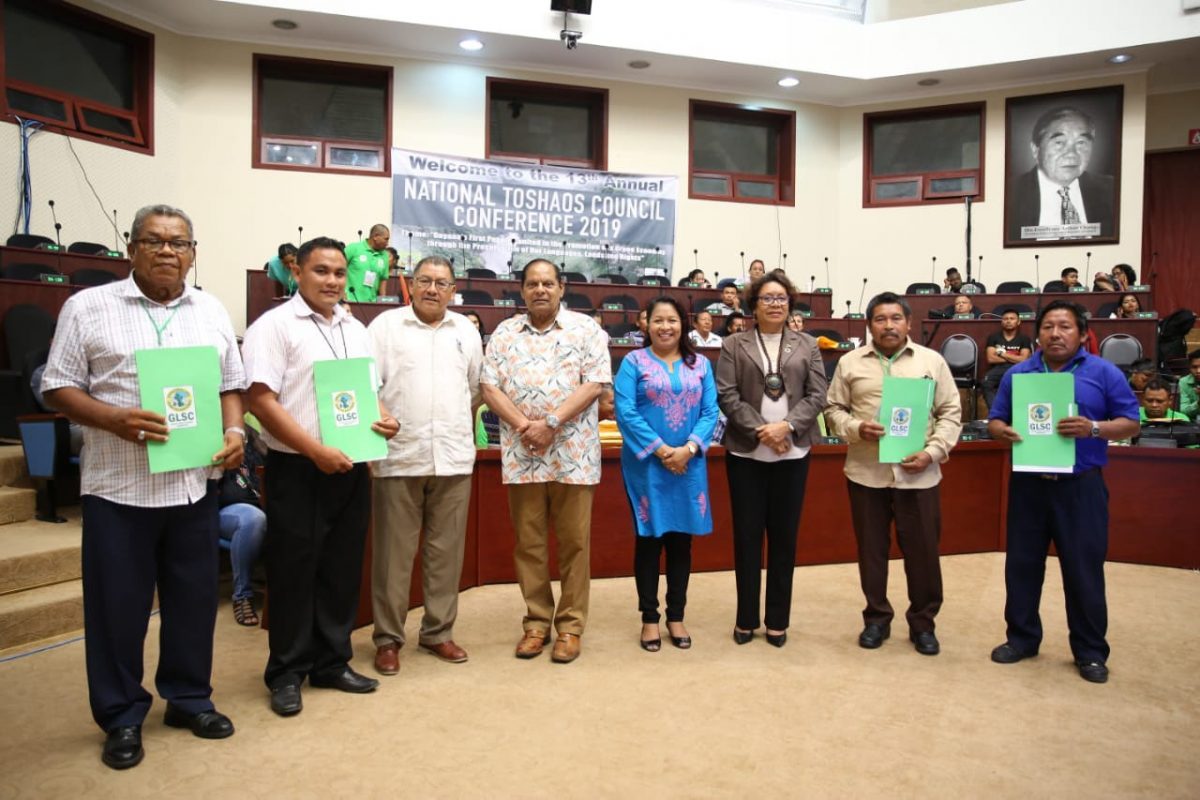Five more Indigenous communities, Kangaruma and Tasserene, in Region Seven, Yupukari, in Region Nine, and St. Monica and Mainstay/Whyaka, in Region Two, received their certificates of titles for their lands yesterday, according to the Depart-ment of Public Information (DPI).
The DPI, in a report, said that the documents were handed over on the final day of the 13th conference of the National Toshaos Council (NTC) at the Arthur Chung Confer-ence Centre in the presence of Prime Minister Moses Nagamootoo, Minister of Indigenous Peoples’ Affairs Sydney Allicock, Minister within the Minis-try of Indigenous Peoples’ Affairs Valerie Garrido-Lowe and Minister of State Dawn-Hastings Williams.
The report noted that the communities have been waiting years for their grants of titles to move forward with their development.
It was pointed out that the tourism-driven communities of Mainstay/ Whyaka applied for their extension in 2011/2012. Toshao Milton Fredericks told the DPI that the village has been waiting for a very long time for the extension and did not abandon its plans to fully utilise the additional land. Fredericks was also reported as saying that the title comes at an opportune time, as it comes when the village’s development is moving ahead.
The Amerindian Land Titling process was facilitated by the Amerindian Act of 2006 that provided for land titling and extensions. This led to the establishment of the Amerindian Land Titling project, which was scheduled to commence in 2013 and end in 2016 under the auspices of the Government of Guyana and the United Nations Development Fund, with funding of $2.2 billion (US$10.7M) provided from the Guyana REDD+ Investment Fund. The project was extended from 2016 to 2018 and subsequently from 2019 to 2021.
The project, the report said, seeks to achieve three primary goals: completion of land titles issues and demarcation process for all Indigenous villages that submitted requests, increased use of existing and alternative mechanisms to resolve land titling disputes, and a communication strategy including a handbook describing the process of titling, demarcation and socio-economic impact of secured land tenure.





